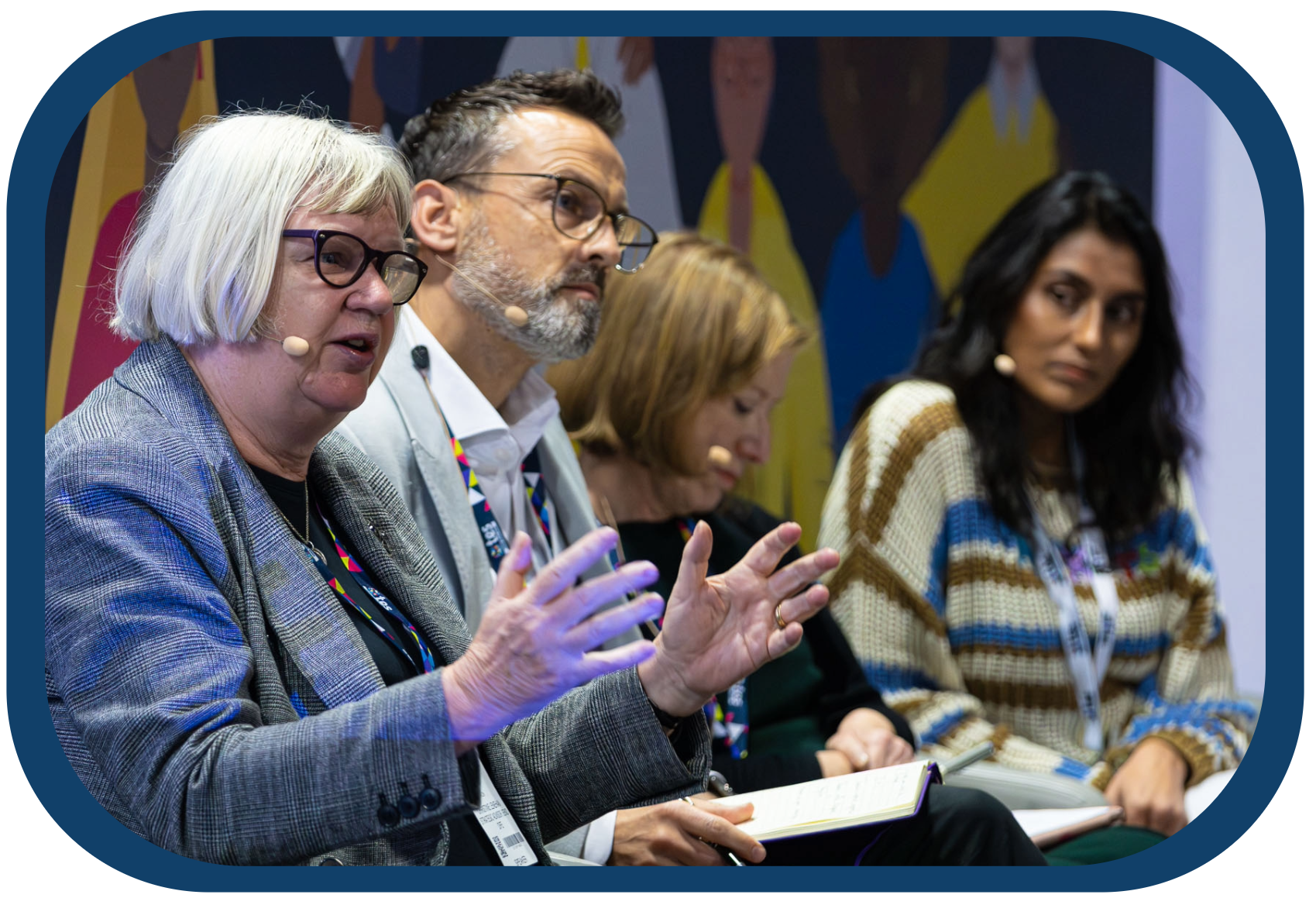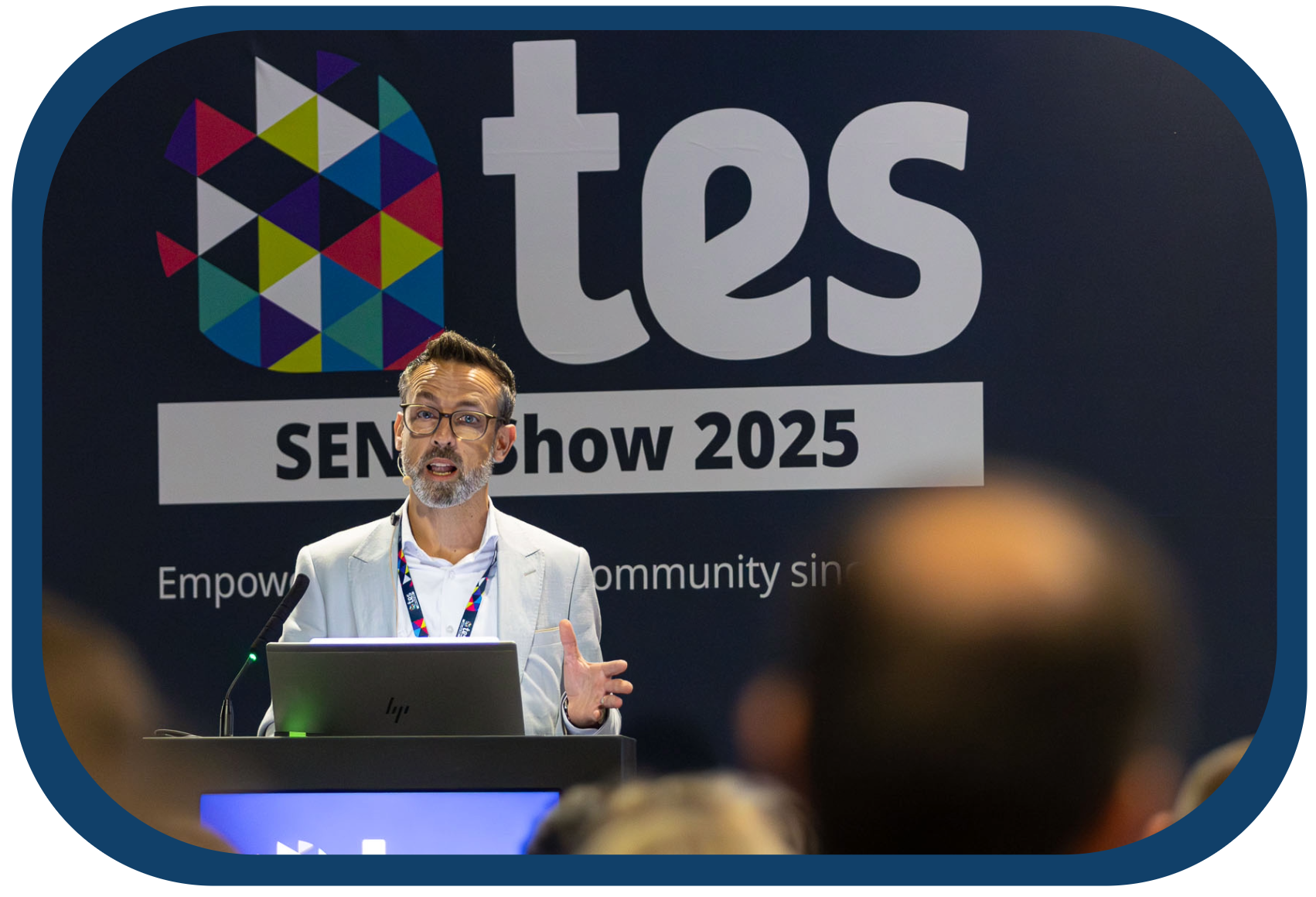Tes SEND Show Opening Keynote: Vision for SEND reform

The Tes SEND Show 2025 opening keynote brought together DfE strategic advisers and sector leaders to outline the case for change in SEND and discuss principles for a more coherent 0–25 system.
Chaired by Dr André Imich OBE, the session opened with Dame Christine Lenehan DBE and Tom Rees setting out a system-wide vision. Lenehan emphasised a coherent 0–25 pathway, stronger alignment with FE, and clearer roles for health and social care alongside schools, while rebuilding trust with families amid high levels of frustration. She highlighted the need for practical pathways such as, speech & language and neurodiversity accountability across agencies, and equal ambition for mainstream inclusion and high-quality specialist provision.
Dame Christine Lenehan DBE -
“We have a real passion for mainstream inclusion, but equally, a clear passion for the very best for children who need specialist provision.”

“At the heart of change, there is something really important about how we rebuild confidence and trust in the system, for parents, for professionals, and for children.”
Rees reflected on a growing consensus that meaningful reform is required beyond the 2014 framework. He argued for inclusion as a design principle of schooling, not a bolt-on, earlier, upstream support rather than waiting for diagnosis, and a shift from “SEND vs non-SEND” labels to predictable classroom responses.
Tom Rees -
“There's a growing consensus on a number of principles that should sit at the heart of a reformed system. The first is to move from thinking as a sense system, as a separate system of itself, and to see it as a principle, a design principle, within the main system, seeing it as something that should influence the fundamentals of schooling.”

Panel contributions reinforced implementation priorities. Amanda Allard, Director Council for Disabled Children called for certainty, an integrated “team around the school,” and interventions that build belonging. Dr Asha Patel urged closer integration with health, trauma-informed practice, and avoiding the “ping-pong” between diagnosis and anxiety support.
Dr Asha Patel -
"As a clinician that was trained in this field, we don't work well with education because the system is so different to what we're used to in health."
"We know the significant amount of evidence around ACEs, adversity. We also know that children and families are experiencing more trauma and adversity than previously. When we're in a position of assessments, diagnosis, looking at reviews, we also need to take into consideration the impact of trauma."

Emma Balchin at the National Governance Association highlighted the role of boards in culture, oversight and community engagement. In addition, panellist Colin Foley stressed therapeutic support for neurodivergent pupils and modernising assessment.
Emma Balchin -
“The board’s role is to support and set that vision and culture, working with leaders, working with staff, actually working with families and the whole school community. They're a real resource to do that connection to community, trying to deconstruct some of the adversarial relationships.”

Following the keynote, attendees continued discussions around inclusion, collaboration, and system reform as they explored the Tes SEND Show exhibition and seminar programme. The conversation set a reflective tone for the two-day event, highlighting both the progress made and the challenges still ahead for the SEND community.
Further reflections from speakers and participants will feature in an upcoming SEND Network podcast, revisiting key themes from the session and sharing perspectives from across education, health, and policy, including Dame Christine Lenehan and Dr Asha Patel.



Please sign in or register for FREE
If you are a registered user on SEND Network, please sign in